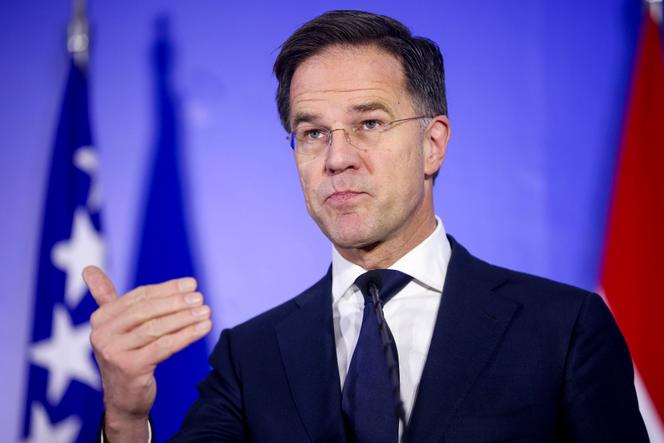


Once Hungarian Prime Minister Viktor Orban gave his approval on Monday, June 17, on the sidelines of the European Council, the suspense was basically over: Mark Rutte, the 57-year-old current Dutch prime minister, is set to become NATO's next secretary general this fall. He will take over from Jens Stoltenberg, who will thereby conclude 10 years spent as head of the Atlantic Alliance.
Following Orban's approval, on Thursday, June 20, Romanian President Klaus Iohannis officially withdrew his own candidacy for head of the alliance, throwing his support behind the Dutch leader. On Tuesday, Slovakia also confirmed its support for Rutte's candidacy.
The transatlantic organization's 32 allies are due to officially give their blessing to the newly elected leader next week at the customary meeting of NATO ambassadors. Unopposed, the 57-year-old Rutte will be appointed NATO secretary general for a four-year term starting on October 1.
The search for Stoltenberg's successor has been a long and difficult one. In February 2022, after Russia launched its invasion of Ukraine, the allies asked Stoltenberg oversee the reinforcement of the alliance's eastern flank. Initially, they asked him to stay on for an additional one additional year, which would eventually become two additional years.
Over the past two years, several names have been circulated to replace the Norwegian, from Mette Fredriksen, the current Danish prime minister, to her Estonian counterpart Kaja Kallas, as well as lesser-known candidates such as former British defense minister Ben Wallace.
While Rutte announced his resignation from the Dutch government in the summer of 2023 − he has been running a caretaker administration ever since − he emerged in the fall as the ideal candidate to replace Stoltenberg. Although he is not a specialist in defense issues, his long tenure in power, his interpersonal skills and his ability to compromise were all assets.
This liberal close to French President Emmanuel Macron quickly won the support of the 'Quad' countries, the informal club of the alliance's largest members − Germany, the US, France and the UK. In addition to Orban's Hungary, he was able to win over all the other allies, including Recep Tayyip Erdogan's Turkey, which was not thrilled with the idea of appointing a Dutchman − the fourth in 75 years − to head the organization.
A strong Atlanticist, Rutte differs from Stoltenberg mainly in his in-depth knowledge of the European Union (EU), of which he was one of the most experienced leaders for 14 years. In the middle of a war in Ukraine, this may help facilitate cooperation between the two institutions, which have long been at loggerheads regarding defense issues. Over the next few years, the EU intends to invest more in this sector.
You have 48.91% of this article left to read. The rest is for subscribers only.
